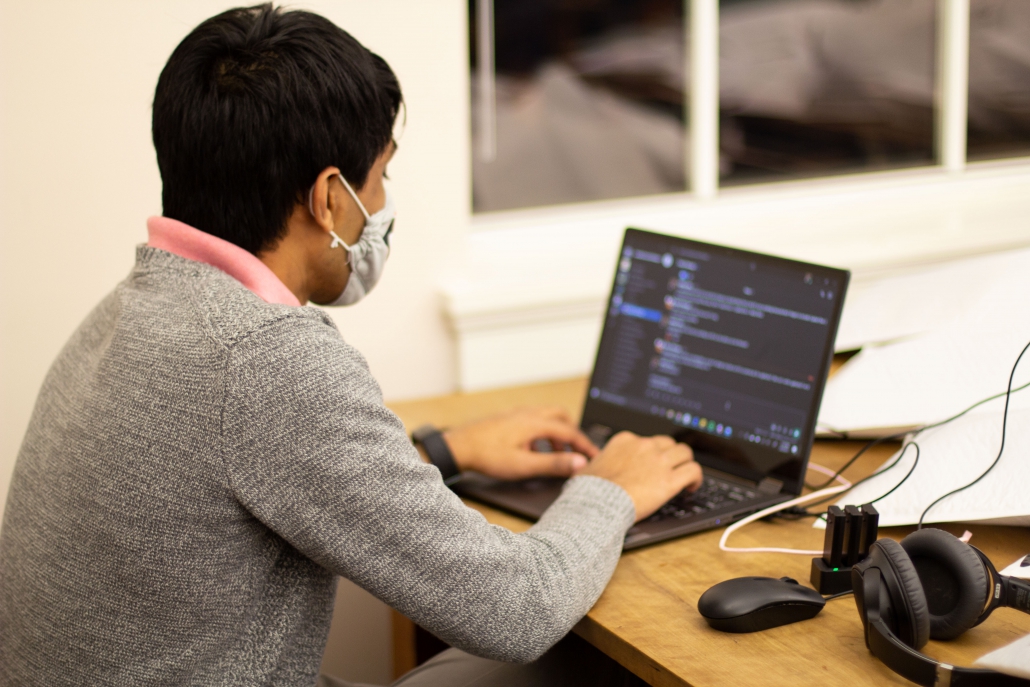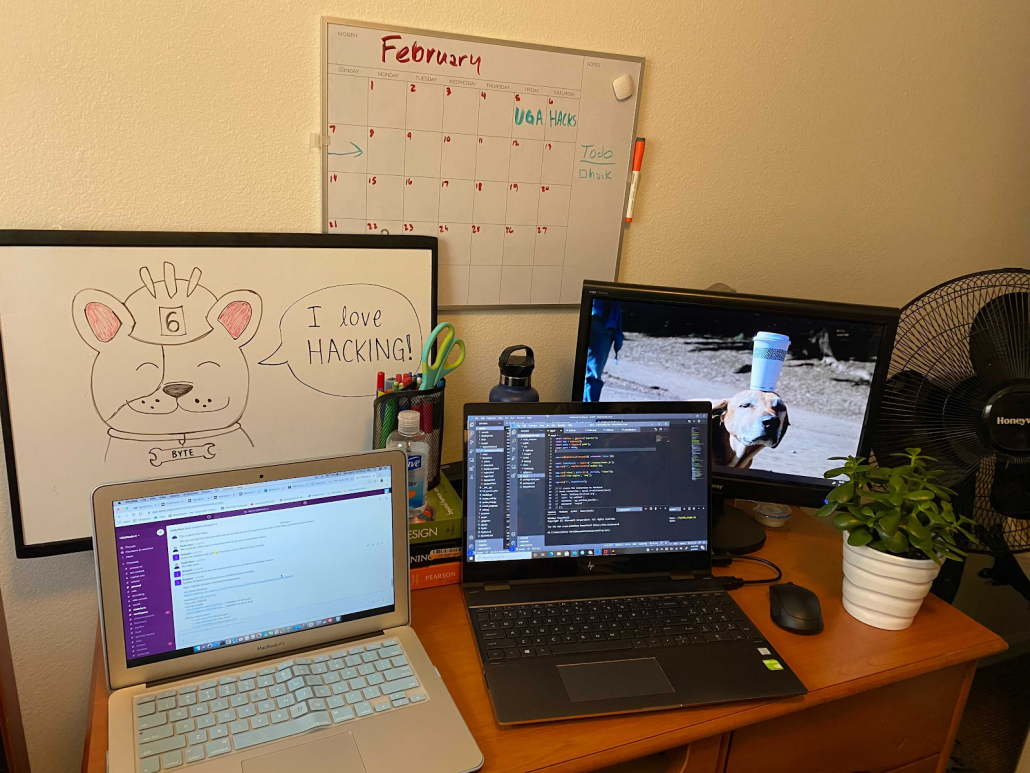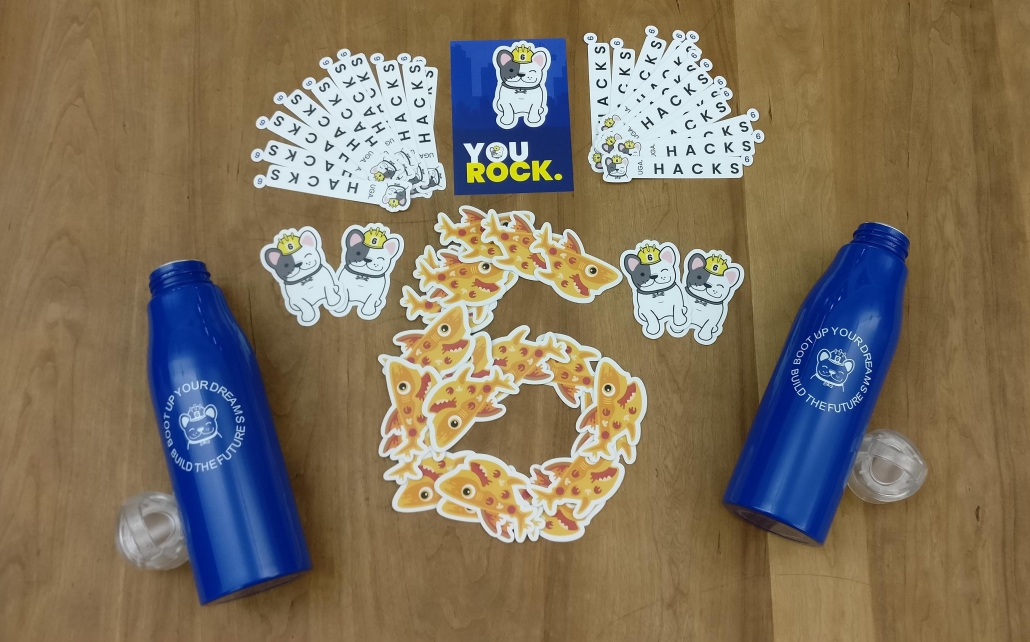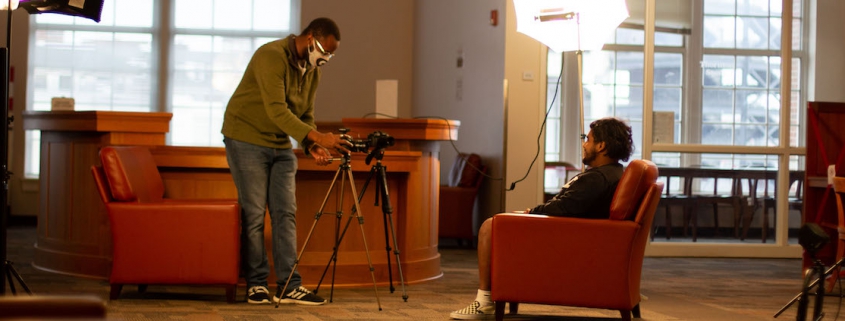President’s Venture Fund helps a UGA hackathon go virtual
In February, students from across the country were invited to take their programming and design skills to the next level with UGA Hacks 6.
UGA Hacks is a nonprofit organization that unites student “hackers,” sponsors and mentors for 48 hours as students tackle programming projects. This year’s theme encouraged participants to build the future. Student projects addressed subjects like making investing more accessible, helping small businesses prosper, and encouraging eco-friendly practices.
But the COVID-19 pandemic imposed a significant challenge on this year’s event: transitioning UGA Hacks 6 to an all-virtual format.
“We went from being in-person to a completely virtual hackathon,” said Sydney Nelms, a UGA student and logistics director for UGA Hacks. “This building is empty, but I can still feel the spirit of people who are probably right now coding.”

UGA Hacks 6 transitioned to a completely virtual event with organizers orchestrating the event from the fourth floor of the Zell B. Miller Learning Center.
A donation from UGA’s President’s Venture Fund (PVF) helped make the transition possible. The PVF supports students by funding small programs and projects on campus. Members of the Presidents Club choose to designate leadership level gifts to the Venture Fund. The Office of the President awards funds to on-campus initiatives through an application process.
Although UGA Hacks centers on participants building and submitting projects, the event also includes workshops and mentorship. These elements encourage students to connect with each other and leaders in the industry.
Over 400 students from over 20 schools joined the all-virtual event this year, and nearly half of the participants were first-time hackers. While a team of 33 organizers led the event from the fourth floor of UGA’s Zell B. Miller Learning Center, participants completed a total of 46 projects through digital tools like Slack and Google Meet.
Maintaining excitement and energy among participants in a virtual format required some creative thinking, such as recognizing participants with the best home workspace and the best homemade meal alongside its typical superlative awards.

Participant Rachel Moan won best workspace for UGA Hacks 6.
Most importantly, though, students still established connections and identified how their skillsets can help build a better tomorrow.
“It’s a triumph, in my opinion,” said Mohd Hasan, a computer science master’s student and advisor to UGA Hacks. “We didn’t cut off that avenue of creativity for the hackers.”

Event items were shipped to UGA Hacks 6 participants across the country.




